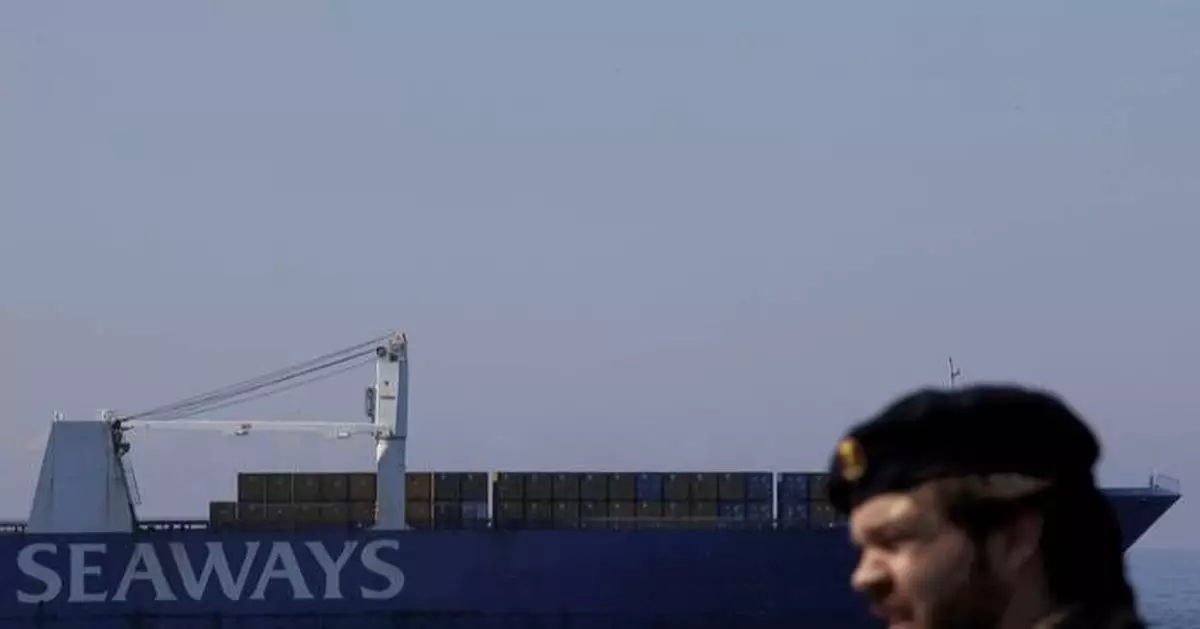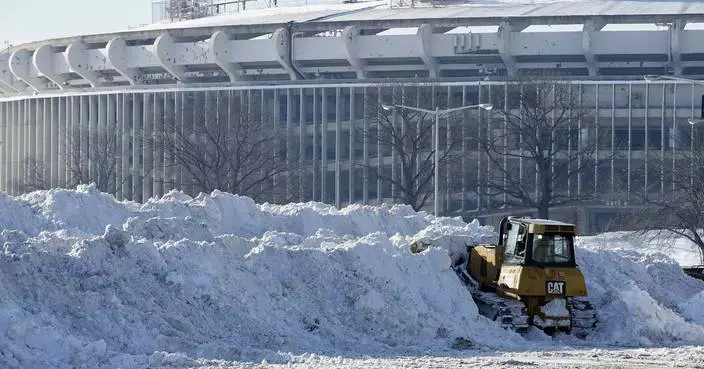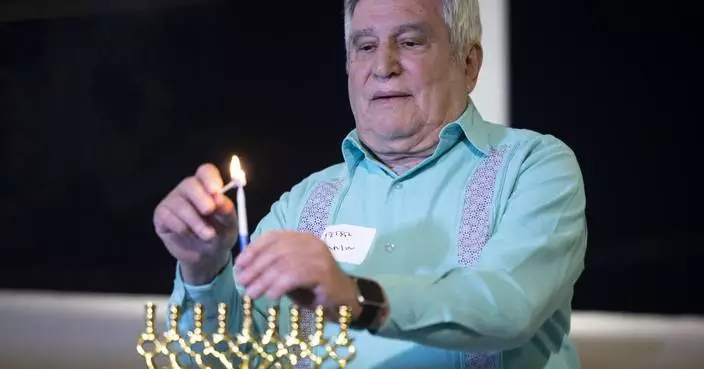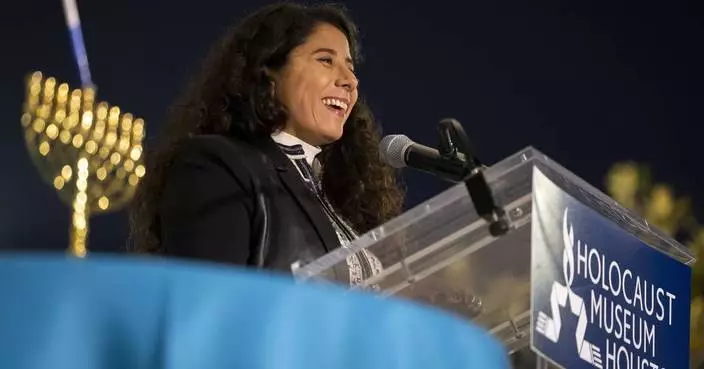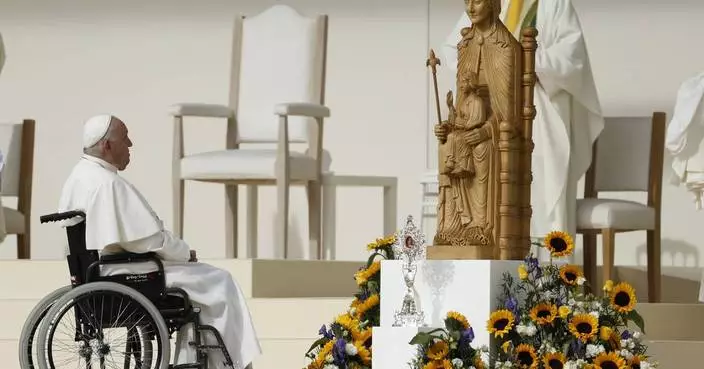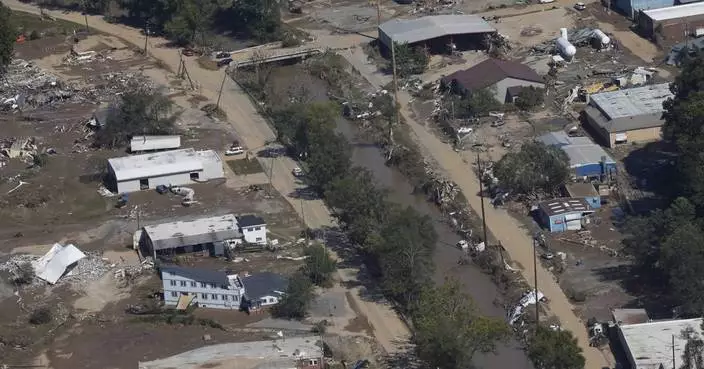NICOSIA, Cyprus (AP) — Cyprus stands ready to help eliminate Syria’s remaining chemical weapons stockpiles and to support a search for people whose fate remains unknown after more than a decade of war, the top Cypriot diplomat said Saturday.
Foreign Minister Constantinos Kombos said Cyprus’ offer is grounded on its own past experience both with helping rid Syria of chemical weapons 11 years ago and its own ongoing, decades-old search for hundreds of people who disappeared amid fighting between Greek Cypriot and Turkish Cypriots in the 1960s and a 1974 Turkish invasion.
Cyprus in 2013 hosted the support base of a mission jointly run by the United Nations and the Organization for the Prohibition of Chemical Weapons (OPCW) to remove and dispose of Syria's chemical weapons.
“As a neighboring country located just 65 miles from Syria, Cyprus has a vested interest in Syria’s future. Developments there will directly impact Cyprus, particularly in terms of potential new migratory flows and the risks of terrorism and extremism,” Kombos told The Associated Press in written replies to questions.
Kombos said there are “profound concerns” among his counterparts across the region over Syria’s future security, especially regarding a possible resurgence of extremist groups like Islamic State in a fragmented and polarized society.
Other challenges include new migratory flows from the country as well as ensuring the safety and rights of women and minorities including Druze, Christians, Jews and Kurds, so that the “rich mosaic of Syria is preserved.”
“This is particularly critical in light of potential social and demographic engineering disguised as “security” arrangements, which could further destabilize the country,” Kombos said.
The diplomat also pointed to the recent proliferation of narcotics production like the stimulant Captagon that is interconnected with smuggling networks involved in people and arms trafficking.
Kombos said ongoing attacks against Syria’s Kurds must stop immediately, given the role that Kurdish forces have played in combating extremist forces like the IS group in the past decade.
A Syrian-led process transitioning the country to an inclusive democracy should integrate the Kurds’ “legitimate asks” while safeguarding the country’s unity and territorial integrity.
Saleh Muslim, a member of the Kurdish Presidential Council, said in an interview that the Kurds primarily seek “equality” enshrined in rights accorded to all in any democracy.
He said a future form of governance could accord autonomy to the Kurds under some kind of federal structure.
“But the important thing is to have democratic rights for all the Syrians and including the Kurdish people,” he said.
Muslim warned that the Kurdish-majority city of Kobani, near Syria’s border with Turkey, is in “very big danger” of falling into the hands of Turkish-backed forces, and accused Turkey of trying to occupy it.
Kombos said the international community needs to ensure that the influence Turkey is trying to exert in Syria is “not going to create an even worse situation than there already is.”
“Whatever the future landscape in Syria, it will have a direct and far-reaching impact on the region, the European Union and the broader international community,” Kombos said.
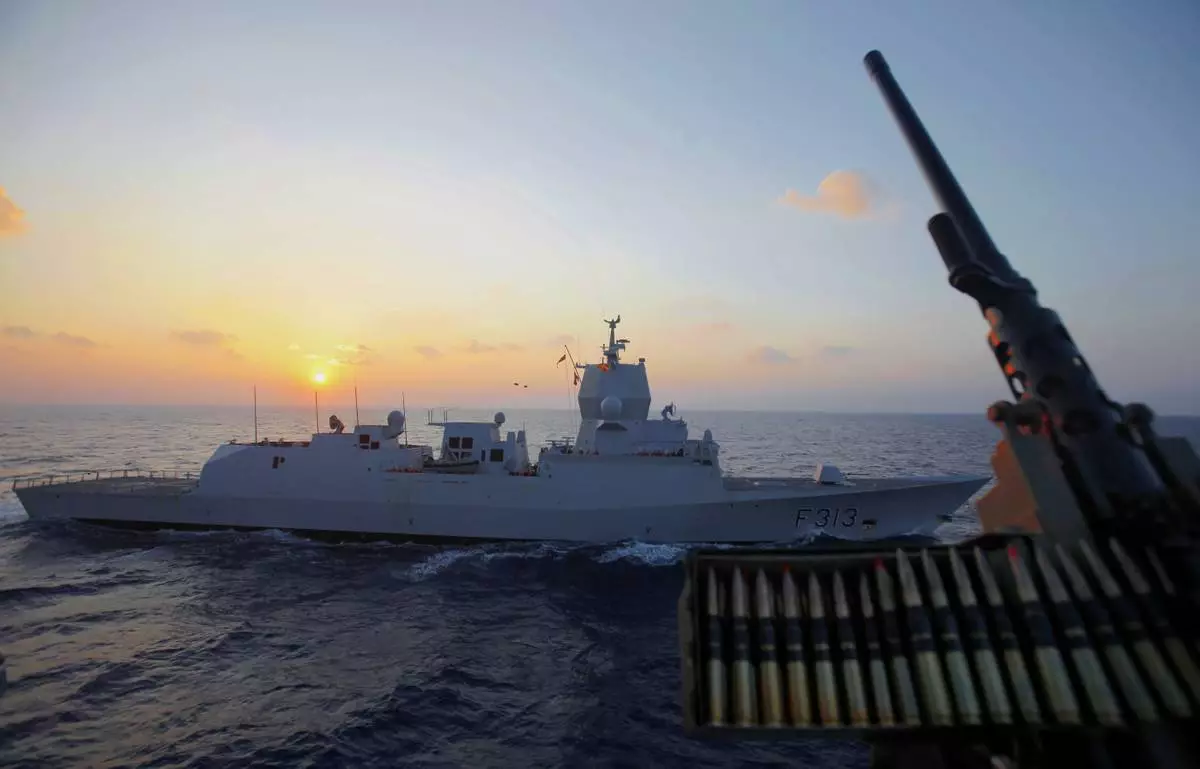
FILE - The Norwegian warship "Helge Ingstad" passes by the Danish warship Esbern Snare during an escort of the cargo ships with Syrias chemical weapons at Mediterranean sea between Cyprus and Syria, Sunday, Jan. 5, 2014. (AP Photo/Petros Karadjias, File)
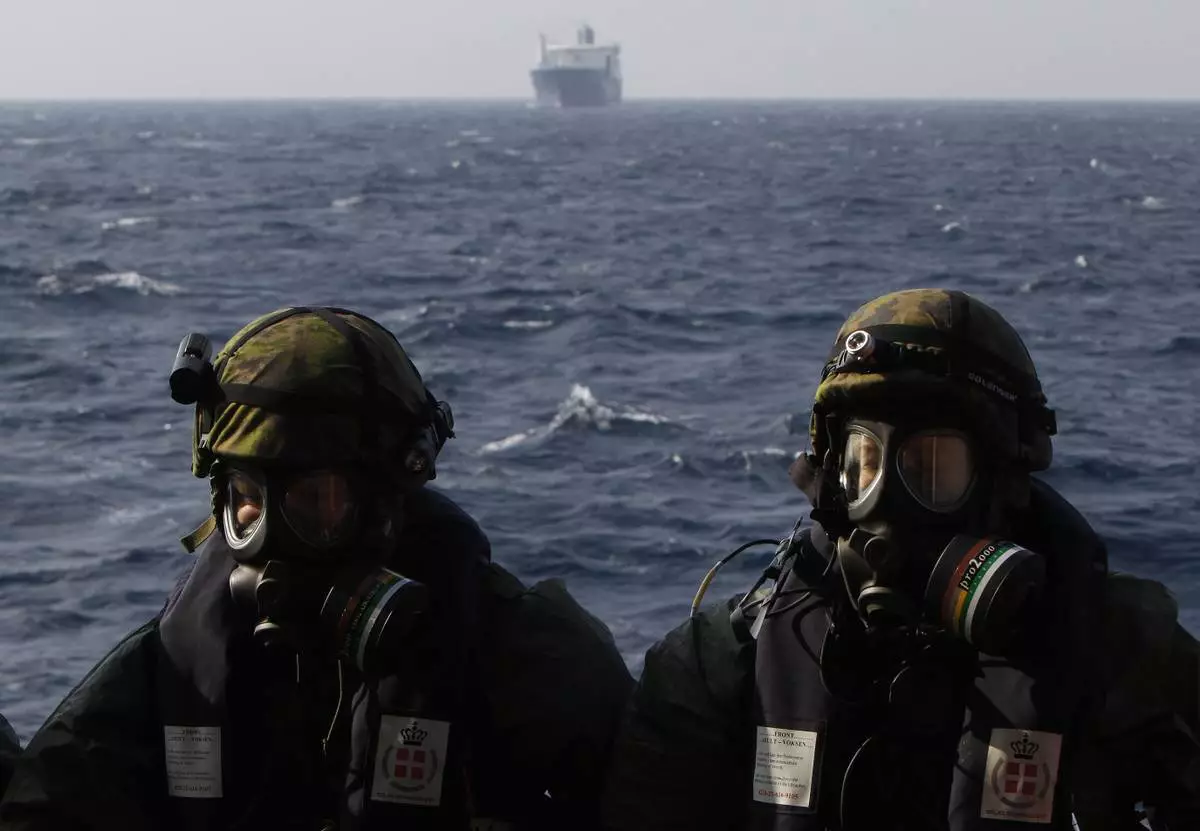
FILE - Finnish crew members of the quick response force take part in an emergency drill, wearing a protective mask and special uniforms, on the Danish warship Esbern Snare during an escort of the cargo ships with Syrias chemical weapons in the Mediterranean sea between Cyprus and Syria, Sunday, Jan. 5, 2014. (AP Photo/Petros Karadjias, File)
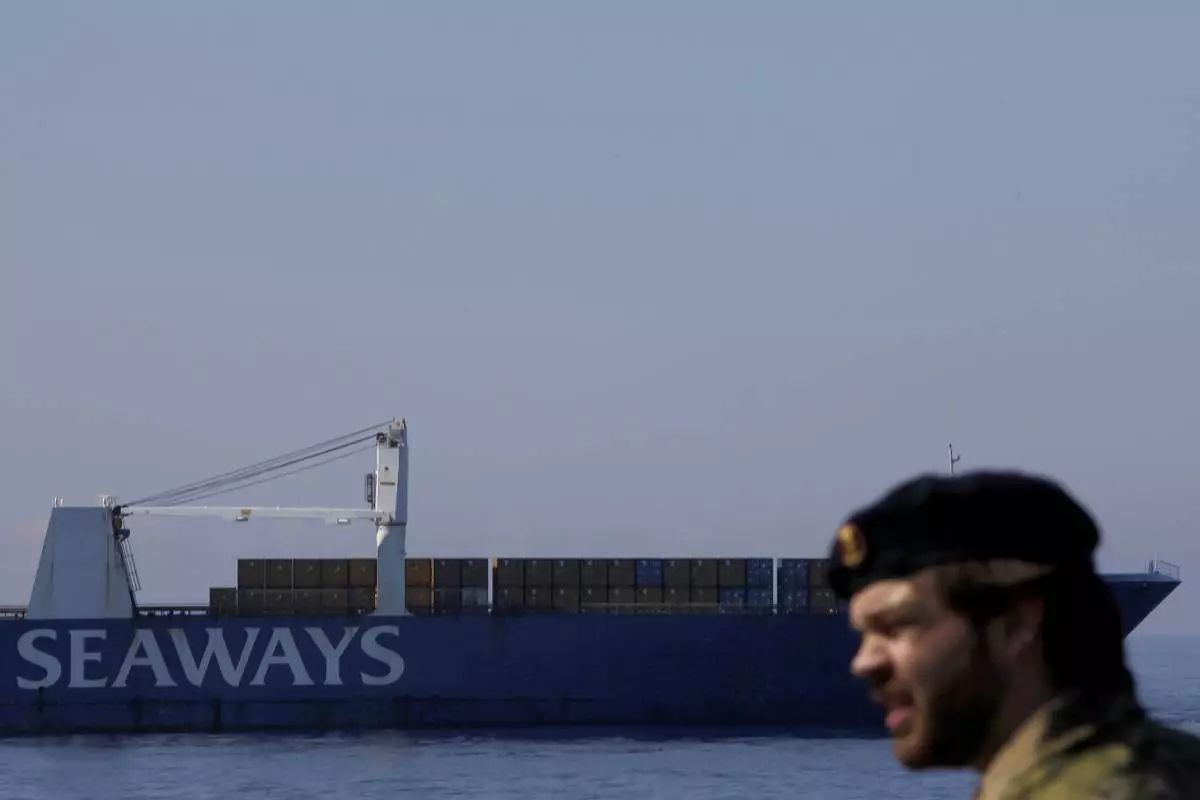
FILE - A Danish soldier onboard the Danish warship "Esbern Snare" as the Danish cargo ship Ark Futura, background, transports Syria's dangerous chemical weapons out of the strife-torn country, out of Cyprus coastal city of Larnaca, on Tuesday, May 13, 2014. (AP Photo/Petros Karadjias, File)
ROME (AP) — Pope Francis is suffering from a cold and will deliver his Sunday blessing from indoors, the Vatican said, announcing the precautions ahead of a busy Christmas period and launch of the Holy Year that will sorely test Francis' stamina and health.
The Vatican cited the cold temperatures outside and Francis' strenuous week ahead, after a wheezing and congested-sounding pope delivered his annual Christmas greeting to Vatican bureaucrats earlier Saturday.
Francis, who turned 88 this past week, on Tuesday is due to inaugurate his big Holy Year and preside over Christmas Eve and Christmas Day celebrations in St. Peter's Basilica. On Thursday, he is scheduled to travel to Rome's main prison to inaugurate the Jubilee there.
Francis has long suffered bouts of bronchitis, especially in winter. In 2023, he ended up the hospital to receive intravenous antibiotics. He had part of one lung removed as a young man and frequently seems out of breath, especially after walking or exerting himself.
He took several minutes to catch his breath on Saturday, when he delivered his annual Christmas greetings to Vatican bureaucrats and lay employees. Once again, he used the occasion to admonish the backstabbing and gossiping among his closest collaborators and urge them instead to speak well of one another.
“A church community lives in joyful and fraternal harmony to the extent that its members walk in the life of humility, renouncing evil thinking and speaking ill of others,” Francis said. “Gossip is an evil that destroys social life, sickens people’s hearts and leads to nothing. The people say it very well: Gossip is zero.”
“Beware of this,” he added.
By now Francis’ annual Christmas address to the priests, bishops and cardinals who work in the Vatican Curia has become a lesson in humility -– and humilitation -- as Francis offers a public dressing down of some of the sins in the workplace at the headquarters of the Catholic Church.
In the most biting edition, in 2014, Francis listed the “15 ailments of the Curia,” in which he accused the prelates of using their Vatican careers to grab power and wealth. He accused them of living “hypocritical” double lives and forgetting — due to “spiritual Alzheimer’s” — that they’re supposed to be joyful men of God.
In 2022, Francis warned them that the devil lurks among them, saying it is an “elegant demon” that works in people who have a rigid, holier-than-thou way of living the Catholic faith.
This year, Francis revisited a theme he has often warned about: gossiping and speaking ill of people behind their backs. It was a reference to the sometimes toxic atmosphere in closed environments such as the Vatican or workplaces where office gossip and criticism circulate but are rarely aired in public.
Francis has long welcomed frank and open debates and even has welcomed criticism of his own work. But he has urged critics to tell it to his face, and not behind his back.
Francis opened his address Saturday with a reminder of the devastation of the war in Gaza, where he said even his patriarch had been unable to enter due to Israeli bombing.
"Yesterday children have been bombed. This is cruelty, this is not war," he said.
The annual appointment kicks off Francis’ busy Christmas schedule, this year made even more strenuous because of the start of the Vatican’s Holy Year on Christmas Eve. The Jubilee is expected to bring some 32 million pilgrims to Rome over 2025, and Francis has a dizzying calendar of events to minister to them.
After addressing the Vatican prelates, Francis issued a less critical address to the Vatican’s lay employees who gathered in the city state's main audience hall along with their families. Francis thanked them for their service and urged them to make sure they take time to play with their children and visit grandparents.
“If you have any particular problems, tell your bosses, we want to resolve them,” he added at the end. “You do this with dialogue, not by keeping quiet. Together we’ll try to resolve the difficulties.”
It was an apparent reference to reports of growing unease within the Vatican workforce that has been called out by the Association of Vatican Lay Employees, the closest thing the Vatican has to a labor union. The association has in recent months voiced alarm about the health of the Vatican pension system and fears of even more cost-cutting, and demanded the Vatican leadership listen to workers’ concerns.
Earlier this year 49 employees of the Vatican Museums — the Holy See's main source of revenue — filed a class-action lawsuit in the Vatican tribunal complaining about labor woes, overtime and working conditions.
Associated Press religion coverage receives support through the AP’s collaboration with The Conversation US, with funding from Lilly Endowment Inc. The AP is solely responsible for this content.
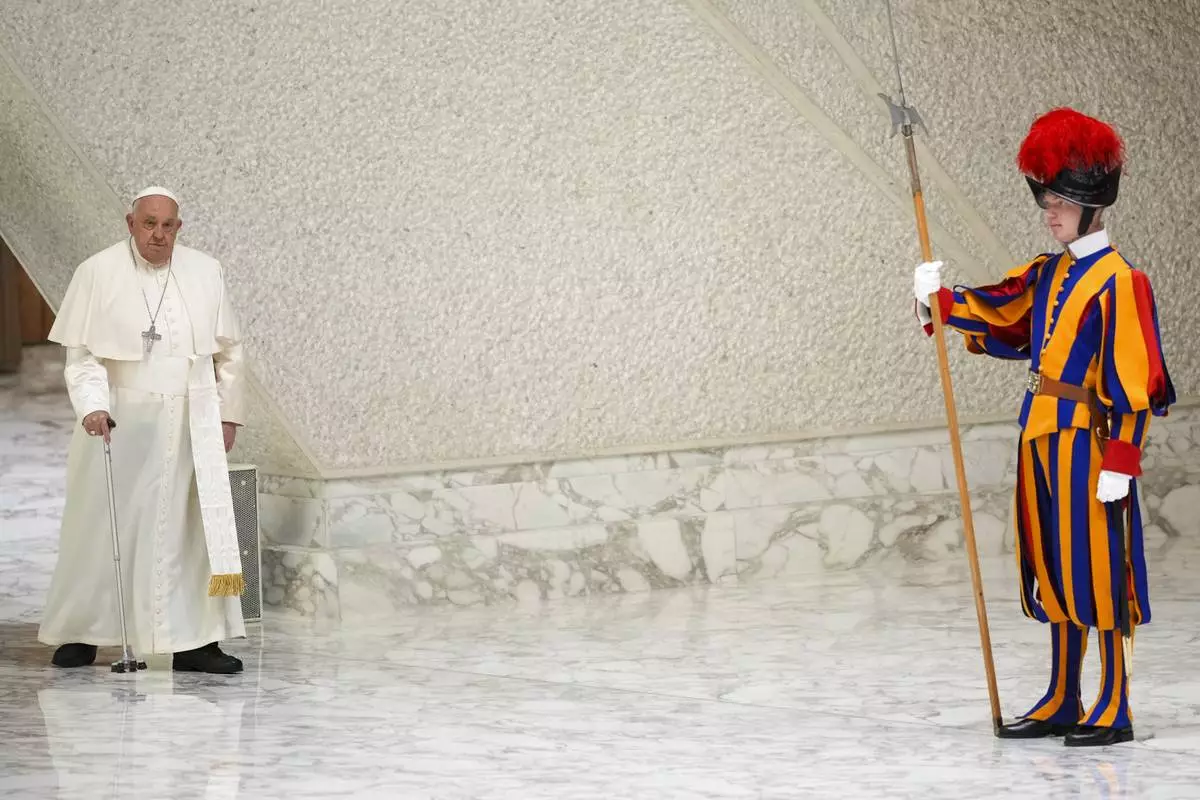
Pope Francis arrives to exchange season greetings with Vatican employees, in the Paul VI Hall at the Vatican, Saturday, Dec. 21, 2024. (AP Photo/Andrew Medichini)
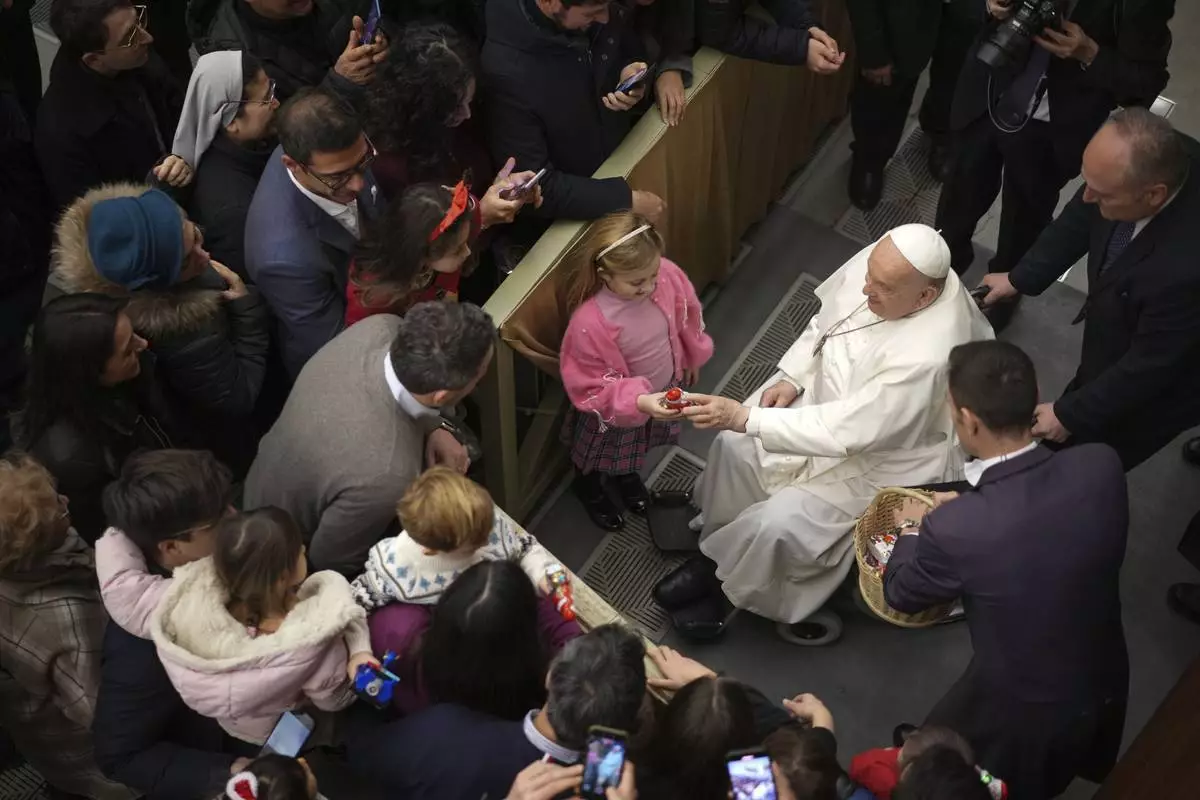
Pope Francis exchanges season greetings with Vatican employees, in the Paul VI Hall at the Vatican, Saturday, Dec. 21, 2024. (AP Photo/Andrew Medichini)
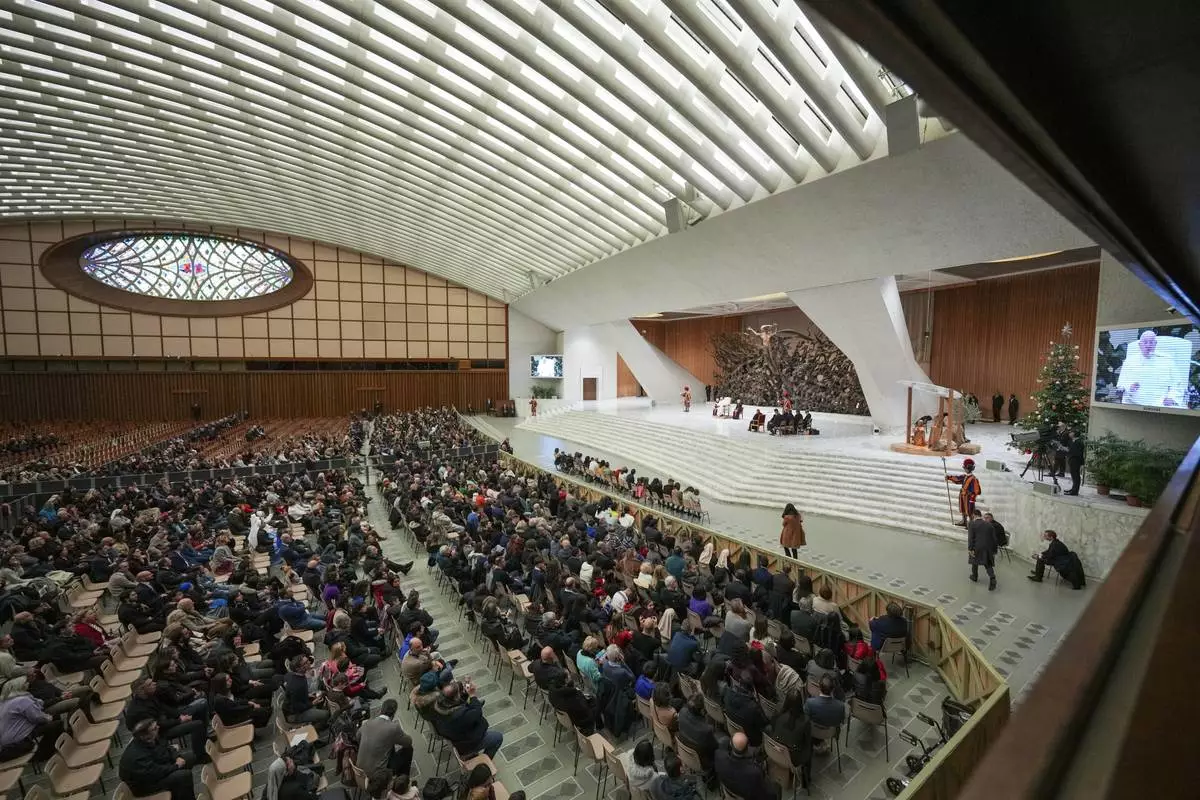
Pope Francis exchanges the season's greetings with Vatican employees, in the Paul VI Hall at the Vatican, Saturday, Dec. 21, 2024. (AP Photo/Andrew Medichini)
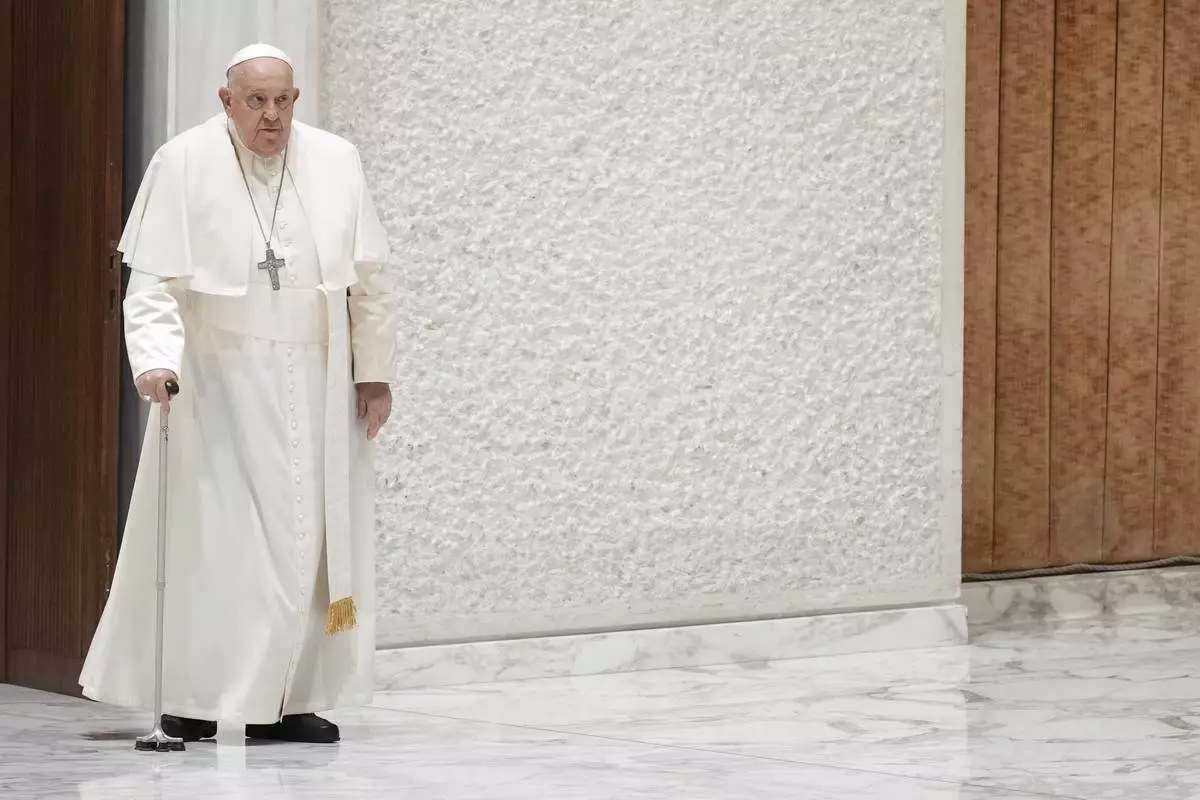
Pope Francis arrives to exchange the season's greetings with Vatican employees, in the Paul VI Hall at the Vatican, Saturday, Dec. 21, 2024. (AP Photo/Andrew Medichini)
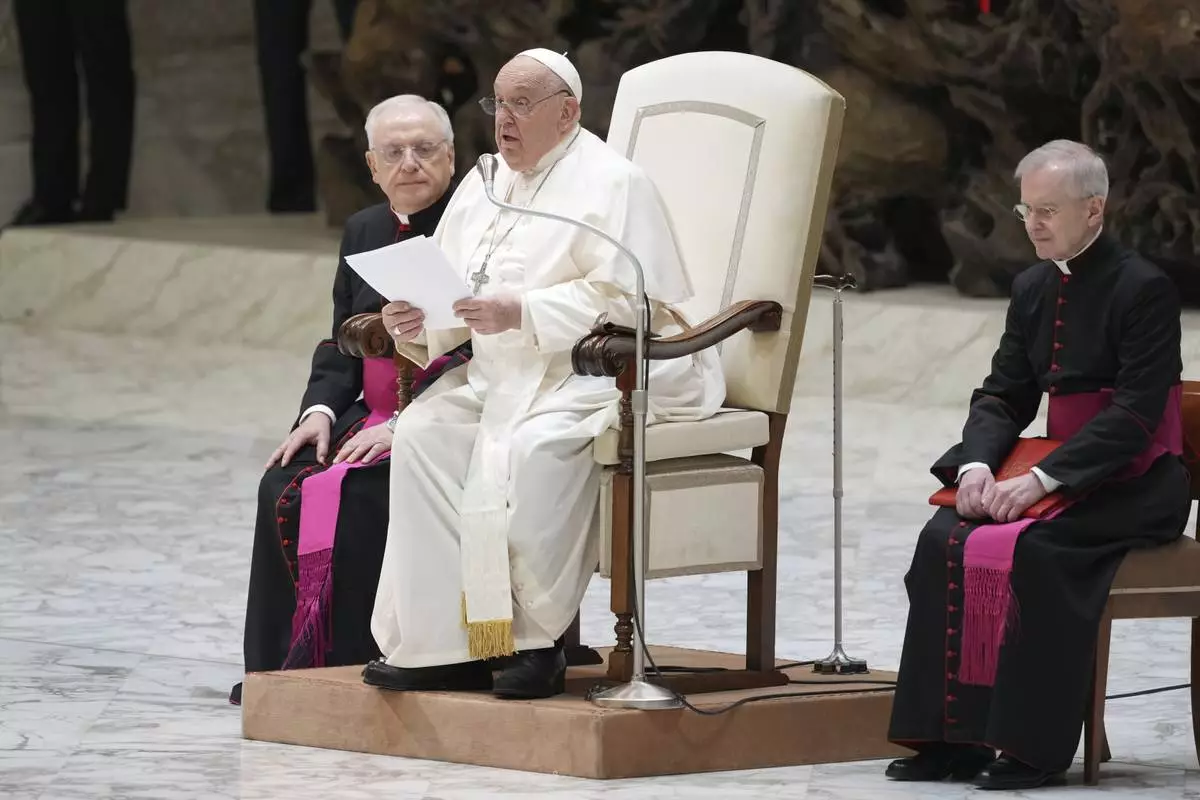
Pope Francis exchanges the season's greetings with Vatican employees, in the Paul VI Hall at the Vatican, Saturday, Dec. 21, 2024. (AP Photo/Andrew Medichini)
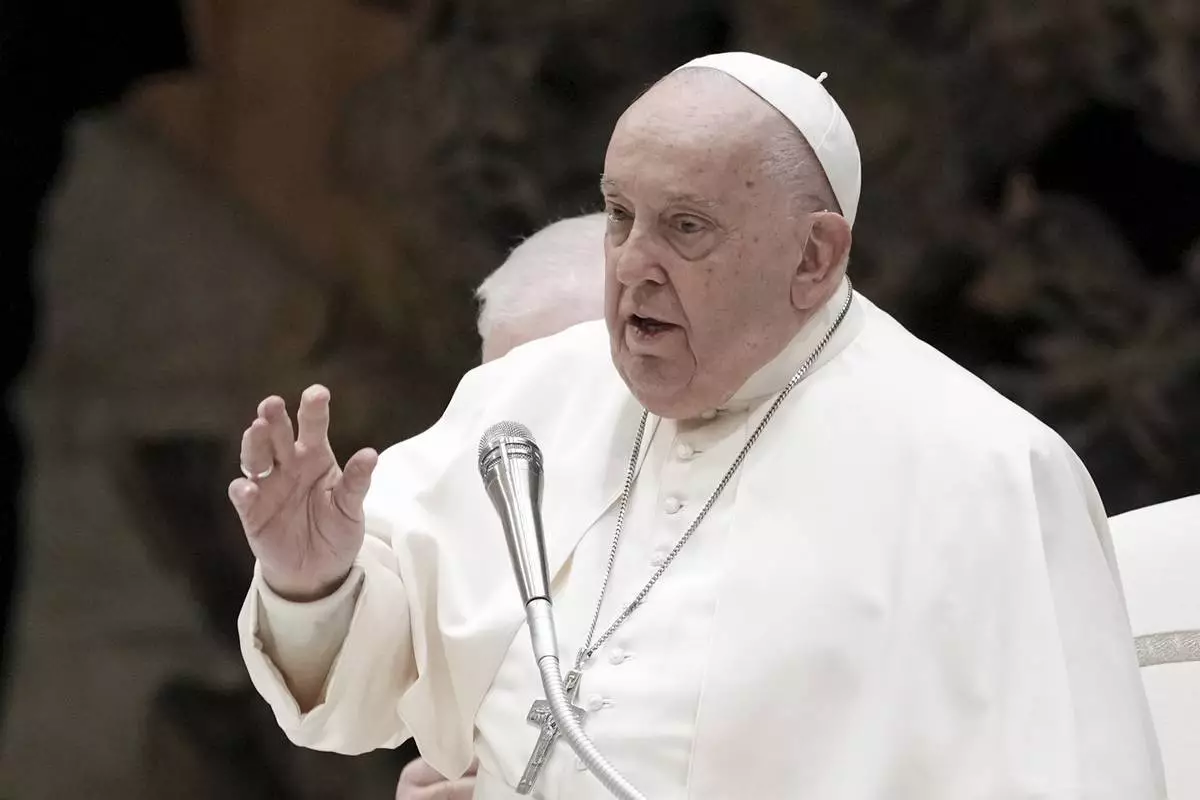
Pope Francis delivers his blessing as he exchanges season greetings with Vatican employees, in the Paul VI Hall at the Vatican, Saturday, Dec. 21, 2024. (AP Photo/Andrew Medichini)
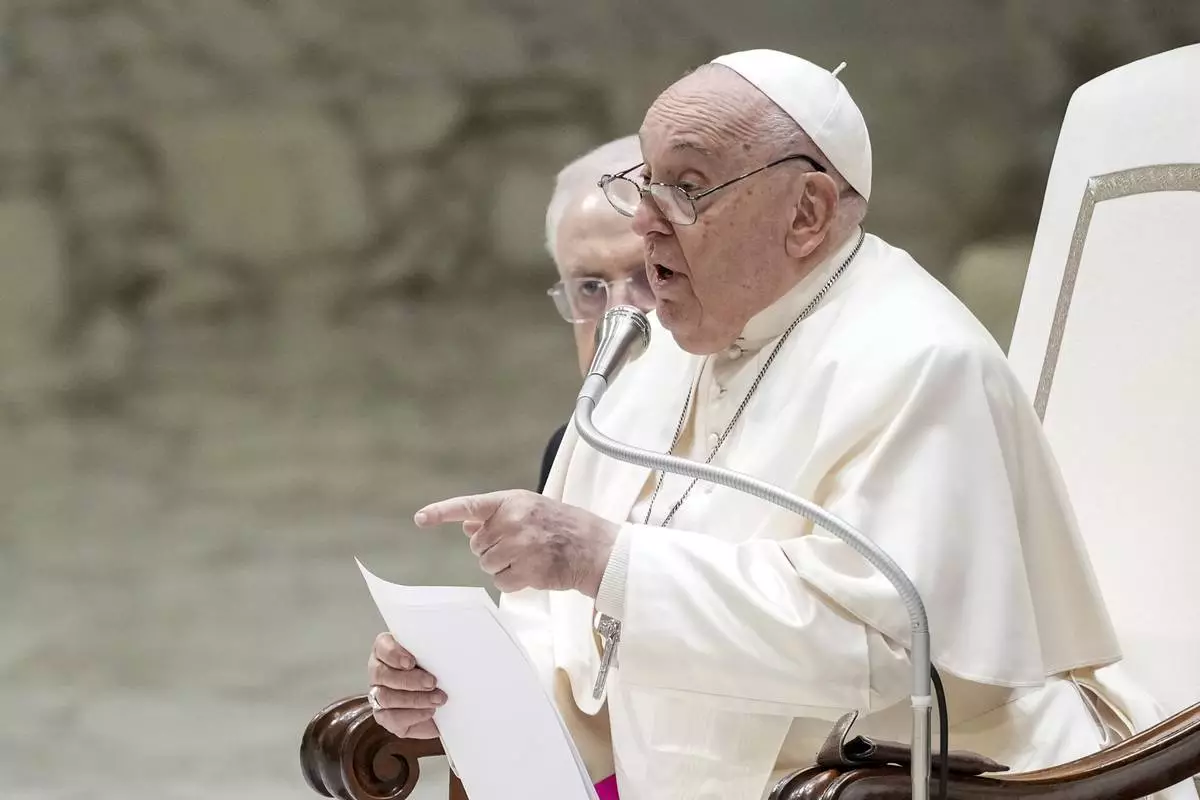
Pope Francis exchanges the season's greetings with Vatican employees, in the Paul VI Hall at the Vatican, Saturday, Dec. 21, 2024. (AP Photo/Andrew Medichini)
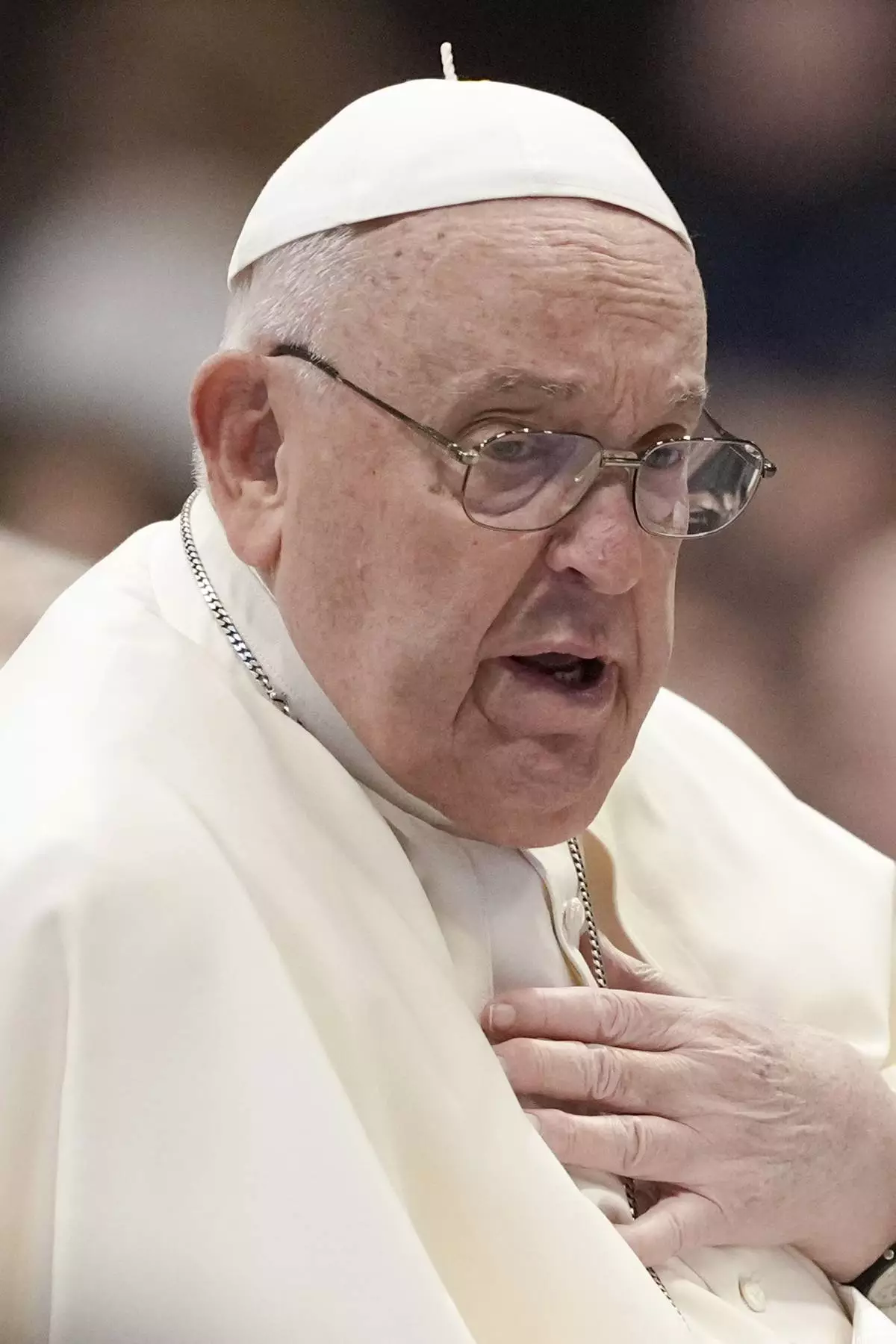
Pope Francis meets with Italian pilgrims participating in the Camino de Santiago, in St. Peter's Basilica at the Vatican, Thursday, Dec. 19, 2024. (AP Photo/Andrew Medichini)
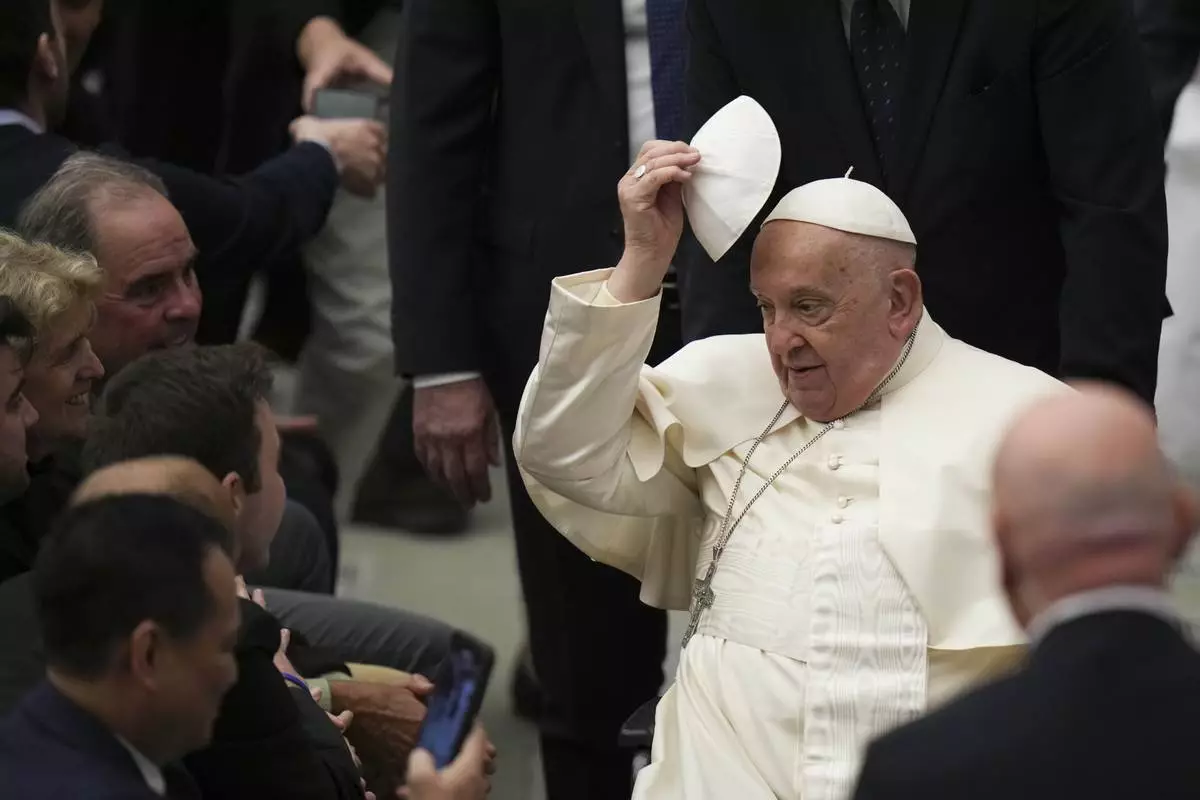
Pope Francis tries a skullcap received by faithful during the weekly general audience at the Vatican, Wednesday, Dec. 18, 2024. (AP Photo/Alessandra Tarantino)





